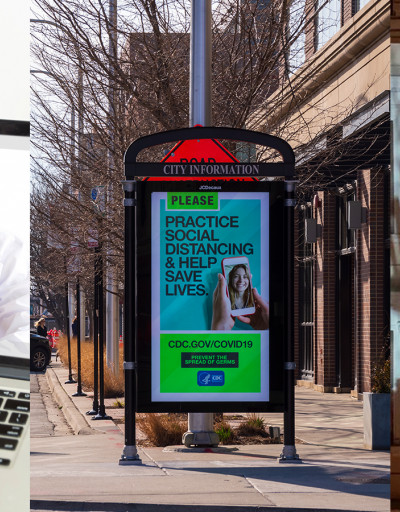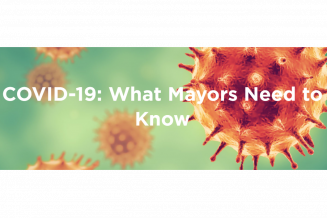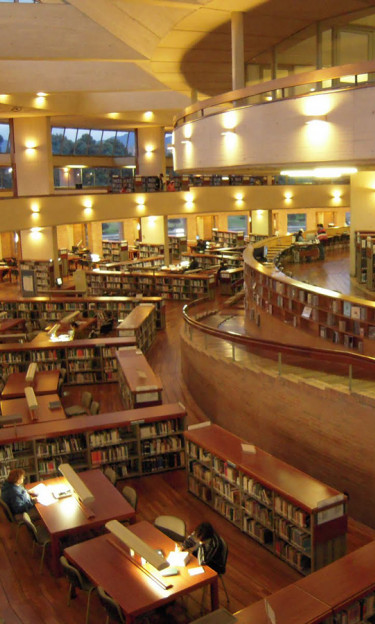Cities, home to more than half the world’s population, have been at the front lines of the COVID-19 pandemic. Yet in addition to being the hardest hit, they have also been the places where innovative solutions have been tested and implemented. UNESCO’s city networks – including the International Coalition of Inclusive and Sustainable Cities (ICCAR) and the Creative Cities Network (UCCN) – devised creative ways to help their inhabitants, particularly the most vulnerable, to cope with the crisis.
In the United States, an online platform, ‘COVID-19: What Mayors Need to Know’, was created by the U.S. Coalition of Cities against Racism and Discrimination (one of the seven regional coalitions of UNESCO’s ICCAR) to provide resources and guidelines. In New York City, all residents got access to free Coronavirus testing. Special measures went into effect for people without health insurance or at risk of discrimination. Mayor Bill de Blasio activated the COVID-19 Emergency Relief Fund to support New Yorkers, notably health care workers and essential staff, small businesses, displaced hourly workers and youth.
Boston’s mayor Marty Walsh led interventions by the city’s agencies on housing, public health, human services and public safety, including emergency shelter, day centres and community meal sites for the homeless. Chicago offered a Coronavirus Response Center, a one-stop online resource for its inhabitants, including immigrant communities. In San Francisco, Mayor London Breed placed a moratorium on home evictions. Mayor Eric Garcetti in Los Angeles had park recreation centres converted into temporary shelter for the homeless, installing 360 hand-washing stations and 120 mobile bathrooms.
Rabat and Essaouira in Morocco, Sidon and Byblos in Lebanon and Alexandria in Egypt – all members of the Coalition of Arab Cities against Racism, Discrimination, Xenophobia and Intolerance, a regional coalition also part of UNESCO’s ICCAR – concentrated their efforts on protecting citizens most at risk.
Special services provided, using both public and private funds, included food delivery to unemployed workers, home medical visits for the elderly, free internet and advice hotlines run by mental health professionals.
Responses were developed using the Toolkit for Urban Inclusion in Arab Cities, published in 2019 by UNESCO and the European Training and Research Center for Human Rights and Democracy. This confirms the utility of the Toolkit as a reference guide ‘by Arab cities, to Arab cities’, presenting policy models and hands-on guidance cities can benefit from in times of crisis.
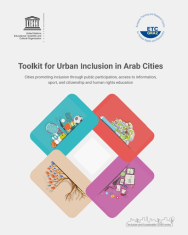
In response to the pandemic, many of the 246 members of the UCCN turned to culture and creativity to boost people’s well-being.
Beijing in the People’s Republic of China, a Creative City of Design, used its creative and technological potential and initiated an ‘Online Medical Consultation Platform for COVID-19’, thereby providing its inhabitants virtual and safe access to medical services, and reducing the risk of cross infection.
In Rome, Italy, Creative City of Film, the ‘Cinema da casa’ project rallied confined citizens around cinema, animating the city with nightly film projections on building facades during its lockdown.
Llíria in Spain, a Creative City of Music, launched the social media campaign #WindowsOfMusicAndHope. Musicians gave concerts on their balconies to cheer up their fellow citizens, setting the example for other Creative Cities around the world.
The Creative Cities of Wonju, Republic of Korea and Bogota, Colombia, made their library resources available despite social distancing, the first with a ‘book drive-through’ plan and the second through its virtual BiblioRed media library.
UNESCO has further compiled a wide diversity of innovative and culture-led responses from Creative Cities in a publication, UNESCO Creative Cities’ Response to COVID-19, which is available in English, French, Spanish and Chinese. The UCCN also organized, in collaboration with Beijing, the 3rd Creative Cities Beijing Summit. It brought together diverse participants to discuss and share good practices, illustrating of how culture and creativity, fused with technology and innovation, have allowed cities to become more resilient and sustainable in the face of COVID-19
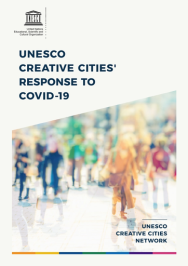
In June 2020, the UNESCO Cities Platform1, which gathers eight UNESCO networks and programmes, organized an online meeting ‘Urban Solutions: Learning from Cities’ Response to COVID-19’ bringing together various urban stakeholders to discuss and support local decision-makers and urban actors in dealing with the multifaceted impact of the COVID-19 pandemic.


